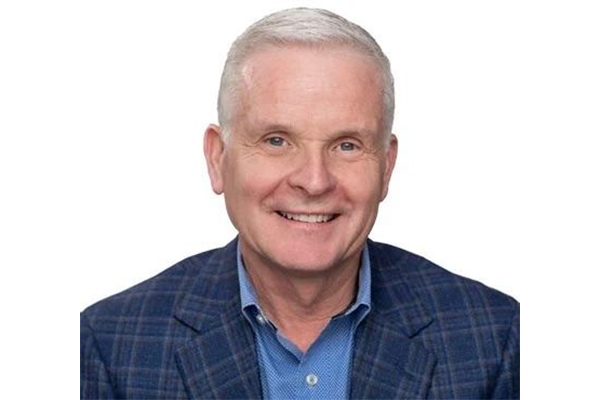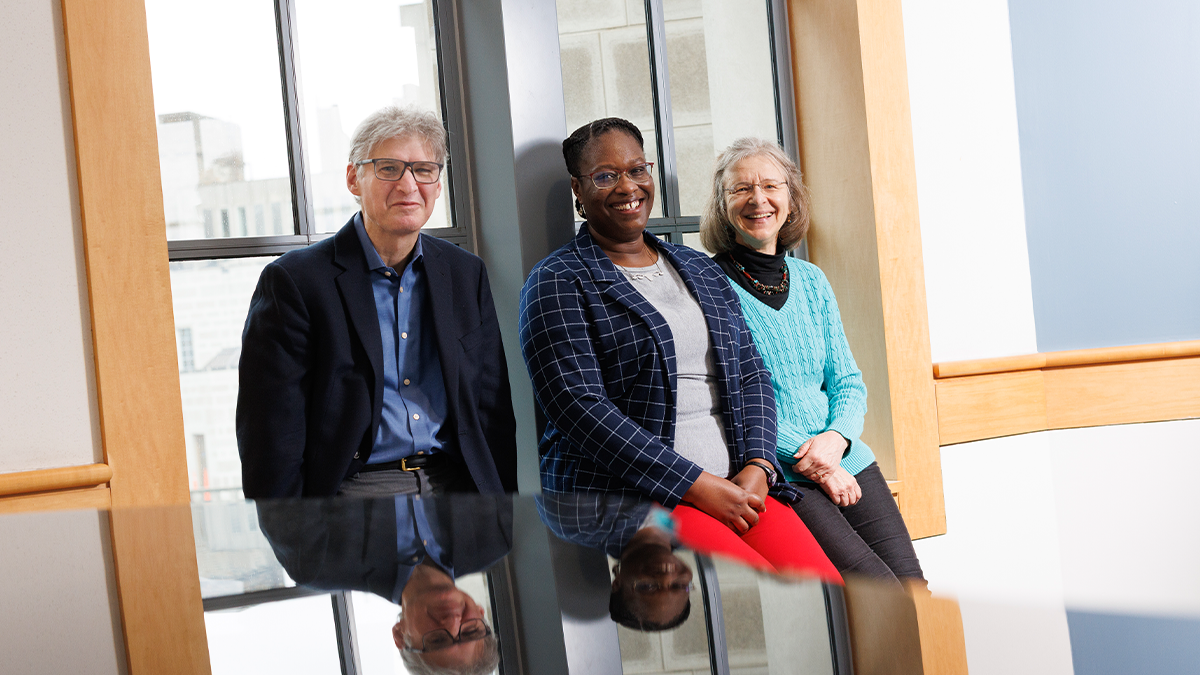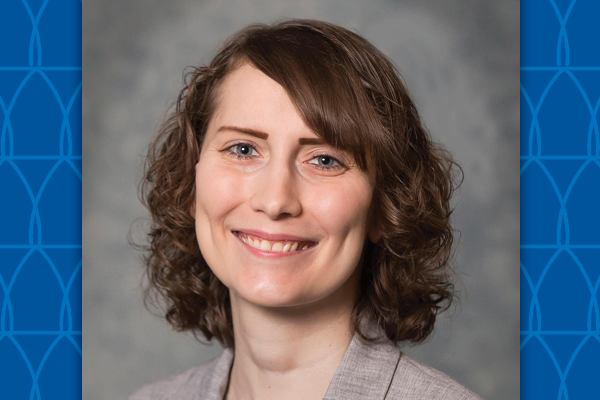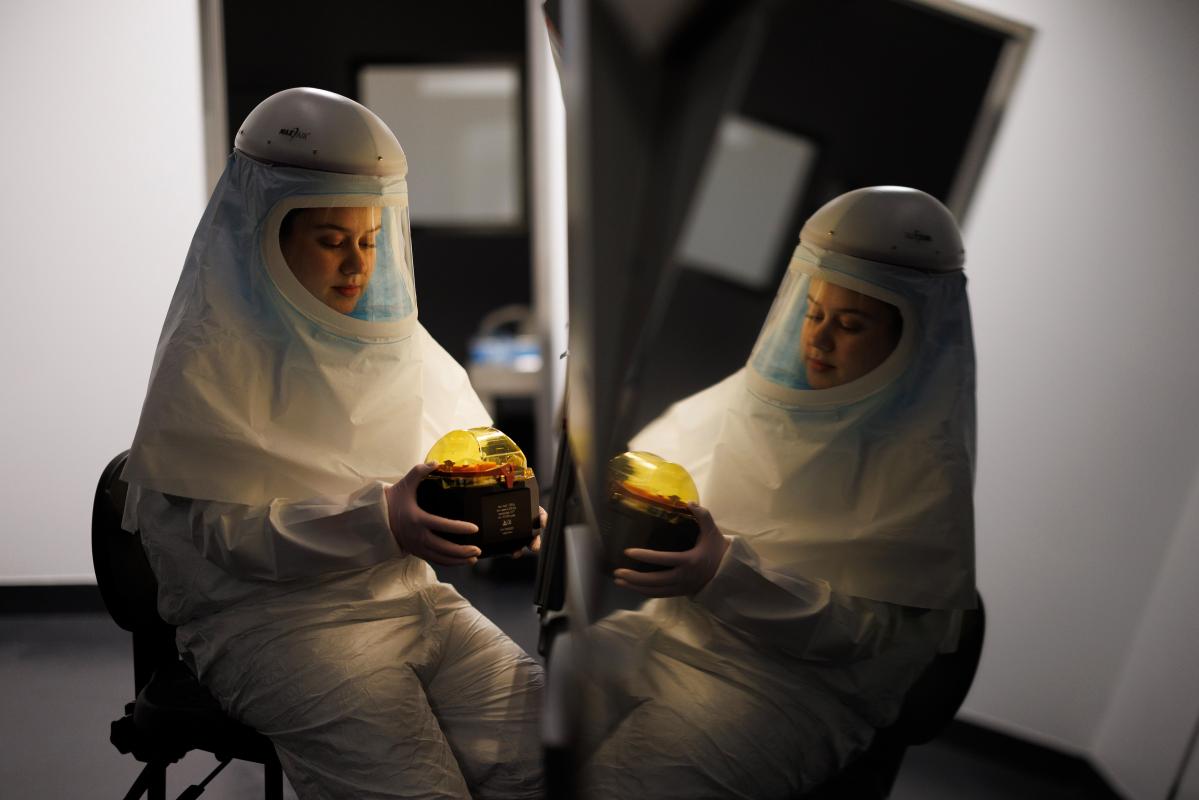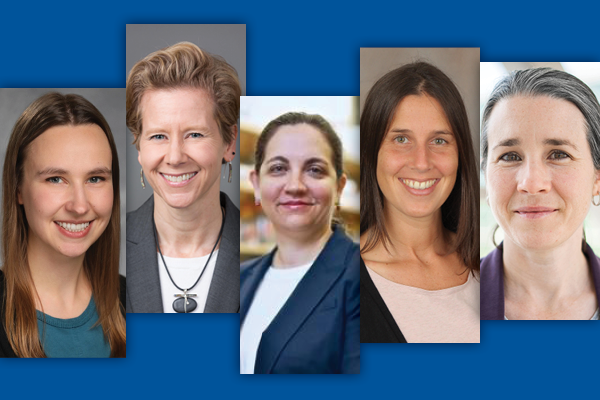Duke-led Study Aims to Better Understand Cancer Risk for Firefighters
Research led by members of the Duke University Nicholas School of the Environment and the Duke Cancer Institute aims to tackle the issue of cancer risk among firefighters based on their exposure to certain harmful chemicals.
McDonnell Wins 2025 Baxter Prize for Entrepreneurship
Donald Patrick McDonnell, PhD, has been awarded the Endocrine Society’s John D. Baxter Prize for Entrepreneurship for discovering hormone therapies for treating breast and prostate cancer.
Filling the Gaps in Uterine Fibroid Research
Researchers in the Department of Obstetrics and Gynecology are examining the silent burden of uterine fibroids. Their push for better medical treatment may give women better, less invasive options—and finally bring fibroid care the attention it deserves.
NIH Grant Fuels Pioneering Research on Long COVID
A team of Duke pathologists led by Carolyn Glass, MD, PhD, has been awarded a $1.3 million grant from the National Institutes of Health to conduct the first in-depth study of long COVID’s effect at the tissue level.
AI Model Predicts Risks and Potential Causes of Adolescent Mental Illness
An artificial intelligence model developed by Duke Health researchers accurately predicted when adolescents were at high risk for future serious mental health issues before symptoms became severe.
Three Questions with Katelyn Holliday
A close connection to the outdoors led Katelyn Holliday, PhD, to her career as an epidemiologist. Read her advice for aspiring scientists.
Food as Medicine
A pilot trial finds that delivery of heart-healthy groceries and nutrition education improves blood pressure and reduces food insecurity for people living in underserved communities.
Less Invasive Lung Cancer Surgeries on the Rise, Study Shows
Data reveal a new era of lung cancer surgery—less invasive, more precise, and still life-saving.
Explainer: Why Universities Need Support for Research Facilities and Administrative Costs
The National Institutes of Health's proposal to cap reimbursement of facilities and administrative (F&A) costs on research grants at 15% would significantly slow or cease scientific and biomedical research at Duke and other research institutions. Here is an explanation of what F&A costs are and why they are such a critical piece of the research endeavor.
Women's History Month: Basic Sciences Spotlights
In recognition of Women's History Month, the School of Medicine highlights just a handful of the women making an impact in the basic sciences.

